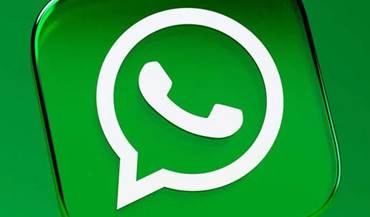Downloading
apps can be frustrating when your internet speed is slow or inconsistent,
especially if you need access to essential tools quickly. Many users often give
up or assume there is no way to improve the situation, which leads to wasted
time and delays in accessing new features. Understanding practical steps to
optimize download speed allows you to get apps installed efficiently, even in
suboptimal network conditions. In this article, we will cover top strategies to
speed up downloads, optimize device settings, and avoid common pitfalls.

Optimize Your Network Connection for Faster Downloads
Switch to a More Stable WiFi Band
Many
modern routers offer both 2.4 GHz and 5 GHz bands, each with distinct
strengths. The 2.4 GHz band provides a longer range but is prone to
interference from other devices, which can slow download speeds. On the other
hand, the 5 GHz band delivers faster speeds over shorter distances, making it
ideal for app downloads when close to the router. Switching to the more stable
and less crowded band can significantly improve download performance. Testing
both bands and observing which one offers the most reliable connection helps
ensure smoother downloads every time.
Pause Other Network-Using Activities
Concurrent
network usage by multiple devices or applications can reduce the available
bandwidth for app downloads. Activities like video streaming, online gaming, or
cloud backups can compete for bandwidth, slowing the download process. Pausing
these activities temporarily while downloading apps ensures that the maximum
bandwidth is dedicated to your device. This strategy can noticeably reduce
download times and prevent interruptions or failures. Coordinating downloads
during periods of low network activity improves efficiency and consistency.
Smart Device Settings to Speed Up Downloads
Schedule Downloads for Off-Peak Hours
Network
traffic often fluctuates depending on the time of day, with peak hours seeing
slower speeds due to high usage. Scheduling app downloads during early
mornings, late evenings, or other off-peak periods can result in faster
installation times. Many devices allow automatic scheduling or delayed
downloads to take advantage of these quieter times. Planning downloads
strategically reduces waiting times and frustration caused by network
congestion. This simple adjustment can make a significant difference in the
efficiency of your app installations.
Free Up Storage Space for Smoother Installation
Insufficient
storage space can slow down downloads and lead to errors during installation.
Removing unnecessary files, clearing cache data, or uninstalling apps you no
longer use can create sufficient space for new installations. Adequate free
storage ensures that downloaded files are processed efficiently without device
performance lag. Checking available storage before initiating downloads
prevents interruptions and failed installations. Keeping your device organized
with ample space contributes to a smoother overall experience.
App Store Tricks You Should Know
Update Apps One at a Time Instead of All Together
Downloading
multiple app updates simultaneously can overwhelm the system and the network,
leading to slower performance. Updating apps one by one prioritizes bandwidth
and reduces the likelihood of stalled or incomplete downloads. This approach
allows you to monitor the progress of each update and troubleshoot issues
immediately. Sequential updates also minimize conflicts between apps during the
installation process. Managing updates this way ensures a more predictable and
faster download experience.
Clear Your App Store Cache for Better Performance
While
app stores like the Huawei AppGallery provide great convenience for downloading
apps such as whatsapp huawei, few users realize that over time, these platforms accumulate
temporary files and cached data. This buildup can affect download speeds and
even cause errors. Clearing the cache refreshes the app store interface,
eliminates potential bottlenecks, and often improves responsiveness while
reducing delays when initiating downloads. Performing this maintenance
periodically can prevent repetitive errors or failed installations,
contributing to a more reliable and efficient download process.

Alternative Download Methods to Try
Some
apps offer alternative methods for downloading, such as direct links from
official websites or in-app download features. These options can bypass
temporary issues in the app store or slow network routing. Using alternative
methods cautiously ensures that you are still downloading safe, verified
content. Manual downloads or APK files for trusted apps provide flexibility
when standard methods are slow. Being aware of alternative download options
increases your chances of completing installations efficiently.
What to Avoid When Dealing with Slow Connections?
Avoid
connecting to public or unsecured WiFi networks during downloads, as they can
be unstable and slow. Refrain from attempting multiple simultaneous downloads,
which can overload your device and reduce overall speed. Do not ignore
notifications about insufficient storage, as downloads may fail without
adequate space. Avoid unnecessary device processes running in the background
that consume bandwidth. Following these precautions helps maintain download
consistency and reduces the risk of errors.
Conclusion
Slow
connections do not have to hinder your access to essential apps and updates. By
optimizing network settings, managing device resources, and applying smart
download strategies, you can improve both speed and reliability. Strategies
such as scheduling downloads, pausing competing activities, and updating apps
sequentially make a significant difference. Maintaining awareness of storage
space, clearing caches, and considering alternative download methods further
enhances performance. Implementing these techniques ensures that your apps are
installed efficiently, providing smoother functionality and better usability
consistently.
